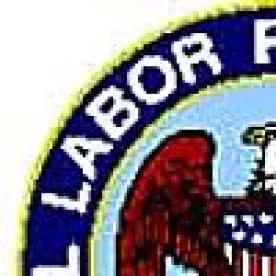On May 30, 2023, the General Counsel (GC) of the National Labor Relations Board (NLRB) took a step toward the federal regulation of employee noncompetition agreements. The GC published a memorandum (the Memo) in which she expressed her opinion that “the proffer, maintenance, and enforcement of such agreements violate Section 8(a)(1)” of the National Labor Relations Act (the Act). Section 8(a)(1) makes it an unfair labor practice for an employer to interfere with employees’ rights to engage in concerted activities provided in Section 7 of the Act. While the Memo is not binding law (which would need to come from the NLRB through rulemaking or caselaw), it signals the agency’s willingness to challenge noncompete agreements through the unfair labor practice charge process. The NLRB GC’s action is separate from and in addition to the Federal Trade Commission’s proposed rulemaking earlier this year that seeks to ban all noncompete agreements except in the sale of business context. See January 2023 GT Alert.
Key Provisions of the GC Memo
The Memo expresses the GC’s opinion that noncompete agreements have a chilling impact on Section 7 rights when the noncompete provisions “could reasonably be construed by employees to deny them the ability to quit or change jobs by cutting off their access to other employment opportunities that they are qualified for based on their experience, aptitudes, and preferences as to type and location of work.” Specifically, the Memo states that noncompete provisions could “chill employees from engaging in five specific types of activity protected under Section 7”:
- concertedly threatening to resign to demand better working conditions;
- carrying out concerted threats to resign or otherwise concertedly resigning to secure improved working conditions;
- concertedly seeking or accepting employment with a local competitor to obtain better working conditions;
- soliciting their co-workers to go work for a local competitor as part of a broader course of protected concerted activity; and
- seeking employment to specifically engage in protected activity with other workers at an employer’s workplace.
The Memo directs NLRB regional offices to submit to the NLRB Division of Advice cases involving “non-compete provisions that are arguably unlawful.” It further directs NLRB regions to “seek make-whole relief for employees who, because of their employer’s unlawful maintenance of an overbroad non-compete provision, can demonstrate that they lost opportunities for other employment.”
Under most existing state laws, noncompete agreements are enforceable if they are narrowly tailored to support a legitimate business interest of the employer, such as the protection of confidential business information or goodwill, and are reasonable in time and geographic scope. Some states (e.g., California and Oklahoma) have broad bans on the enforcement of employee noncompete agreements and are contemplating further ways to prohibit their use. See April 2023 GT Alert. Other states (e.g., Massachusetts) have enacted laws curtailing the enforceability of noncompete agreements. Although the Memo suggests that noncompete agreements would almost always violate Section 7 of the Act, it allows that employers’ legitimate interest in protecting proprietary or trade secret information could be addressed by narrowly tailored workplace agreements that protect those interests, like nondisclosure agreements (NDAs). However, employers often rely on noncompete agreements as part of a layered approach to the protection of proprietary information because noncompete agreements (where permitted under state law) can provide protection beyond an NDA. The Memo provides that some noncompete agreements may not violate the Act where the provisions clearly restrict only individuals’ management or ownership interests in a competing business, or “true independent-contractor relationships.” Further, the Memo provides that “there may be circumstances in which a narrowly tailored non-compete agreement’s infringement on employee rights is justified by special circumstances,” while also noting that a desire to avoid competition from a former employee is not a legitimate defense.
Implications
While the Memo is not binding law, it does signal the possibility of future attempts to challenge the validity of noncompete agreements in litigation before the NLRB. It also follows the NLRB’s ruling in McLaren Macomb, finding that certain confidentiality and non-disparagement provisions in severance agreements may be unlawful. See March 2023 GT Alert. Together, these two developments (among others) indicate increased NLRB scrutiny of employers’ attempts to protect against misuse of confidential information or unfair competition. Notably, because the Act does not apply to “supervisors,” the NLRB’s initiatives in this area may have limited applicability to agreements with managers, executives, and other senior personnel. See 29 U.S.C. § 152(3).
Employers should be aware of these developments at the federal level, as well as the multiple state and local laws that have either banned or limited the use of noncompete agreements.






 />i
/>i

